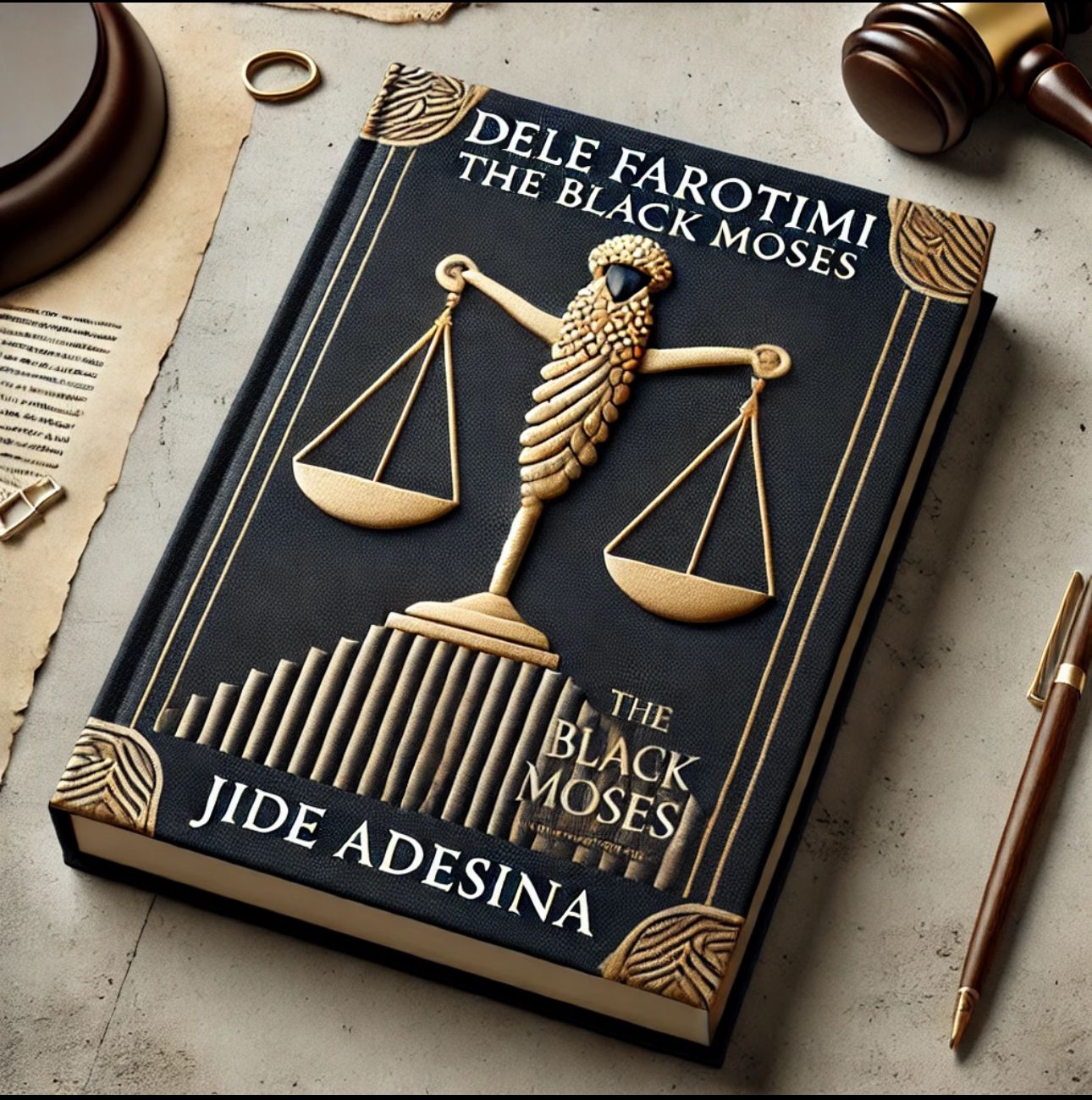 Dele Farotimi stands as a towering figure in Nigeria’s legal and activist landscape, a man whose life has been defined by an unyielding commitment to justice, fairness, and societal transformation. His journey from a humble upbringing to becoming a beacon of hope in Nigeria’s legal and political circles is a story of resilience, conviction, and an uncompromising struggle against entrenched systemic ills.
Dele Farotimi stands as a towering figure in Nigeria’s legal and activist landscape, a man whose life has been defined by an unyielding commitment to justice, fairness, and societal transformation. His journey from a humble upbringing to becoming a beacon of hope in Nigeria’s legal and political circles is a story of resilience, conviction, and an uncompromising struggle against entrenched systemic ills.
Dele Farotimi was born into a society burdened by social inequities, economic disparities, and systemic corruption. His upbringing in a modest environment exposed him early to the stark realities of life in Nigeria. The harshness of his surroundings sharpened his intellect and nurtured a fierce sense of justice. It was this background that ignited a burning desire to challenge oppression and fight for the downtrodden.
His early education mirrored the challenges of navigating a socio-political system marred by inequality. Yet, Farotimi excelled academically, driven by a relentless thirst for knowledge. He pursued law, not merely as a profession but as a tool for social change. His admission to the Nigerian Law School was a critical milestone, marking the beginning of a career that would become synonymous with the pursuit of justice and human rights advocacy.
Dele Farotimi’s legal practice has always been inseparable from his activism. While many lawyers choose the safety of commercial or corporate law, he chose the rugged path of human rights law. He became a relentless defender of the oppressed, often representing individuals and communities who found themselves victims of state-sponsored violence, illegal detentions, and human rights abuses.
Farotimi’s courtroom battles were never merely about winning cases but about challenging a legal system he saw as compromised and weaponized against ordinary citizens. His legal advocacy extended beyond the courtroom; he penned articles, delivered searing speeches, and participated in public protests against systemic failures. His voice became a force in Nigeria’s socio-political discourse, feared by the corrupt and revered by the people.
Farotimi’s activism transcends legal advocacy. He is a prisoner of conscience — someone whose convictions have made him a target of the state. He has often faced intimidation, threats, and state-sponsored harassment for his uncompromising stance on justice and fairness. His activism has taken him to the streets, where he has marched alongside students, activists, and labor unions, lending his voice to causes that matter.
His activism is characterized by a deep understanding of Nigeria’s historical and political dynamics. He has never shied away from calling out the corrupt elite, both within the government and the judiciary. He is a fierce critic of the military’s past incursion into Nigerian politics and has repeatedly condemned the politicization of the judiciary. His activism is fueled by an understanding that no democracy can survive without an independent judiciary and an informed citizenry.
Farotimi’s greatest battles have been against Nigeria’s political and judicial systems, which he believes are intrinsically corrupt and manipulated by the ruling class. He views the judiciary as an institution that has largely failed to fulfill its constitutional role as the last hope of the common man. His criticism of the judiciary has been relentless, often calling for structural reforms to end the culture of impunity within the legal system.
He has argued that the Nigerian judiciary suffers from a lack of accountability, excessive bureaucratic control, and susceptibility to political interference. His legal writings and public commentaries expose the systemic rot in Nigeria’s legal and political institutions, highlighting how corruption has eroded trust in governance. He is particularly scathing in his critique of compromised judges, corrupt police officers, and manipulative politicians who use state power for personal gain.
Farotimi’s vision for Nigeria transcends criticism; it is a call for comprehensive reform. He has advocated for judicial autonomy, electoral reforms, and the restructuring of Nigeria’s political system to reflect true federalism. His proposed solutions include strengthening the rule of law, protecting the independence of the judiciary, and empowering civil society organizations to hold public officials accountable.
Despite numerous personal sacrifices, Farotimi has remained committed to his cause. His writings, often published in leading newspapers and online platforms, are both intellectual and passionate. His books and public lectures are manifestos for change, blending legal analysis with historical and socio-political insight.
Dele Farotimi’s life and work embody the struggle for a just and equitable Nigeria. His refusal to compromise on principles has earned him admiration from progressive Nigerians and contempt from the corrupt establishment. He remains a living testament to the power of courage, intellect, and moral conviction in the face of oppression.
He is indeed The Black Moses, leading a generation of young Nigerians toward an envisioned future where justice, equity, and fairness reign. Farotimi’s enduring struggle reminds us that while the fight for justice may be long and arduous, it is never in vain. His legacy will continue to inspire future generations, ensuring that the flame of justice burns ever brighter in Nigeria’s collective consciousness.
By: Jide Adesina
Extract from my book – The Black Moses
To be published soon
(c) All rights reserved

